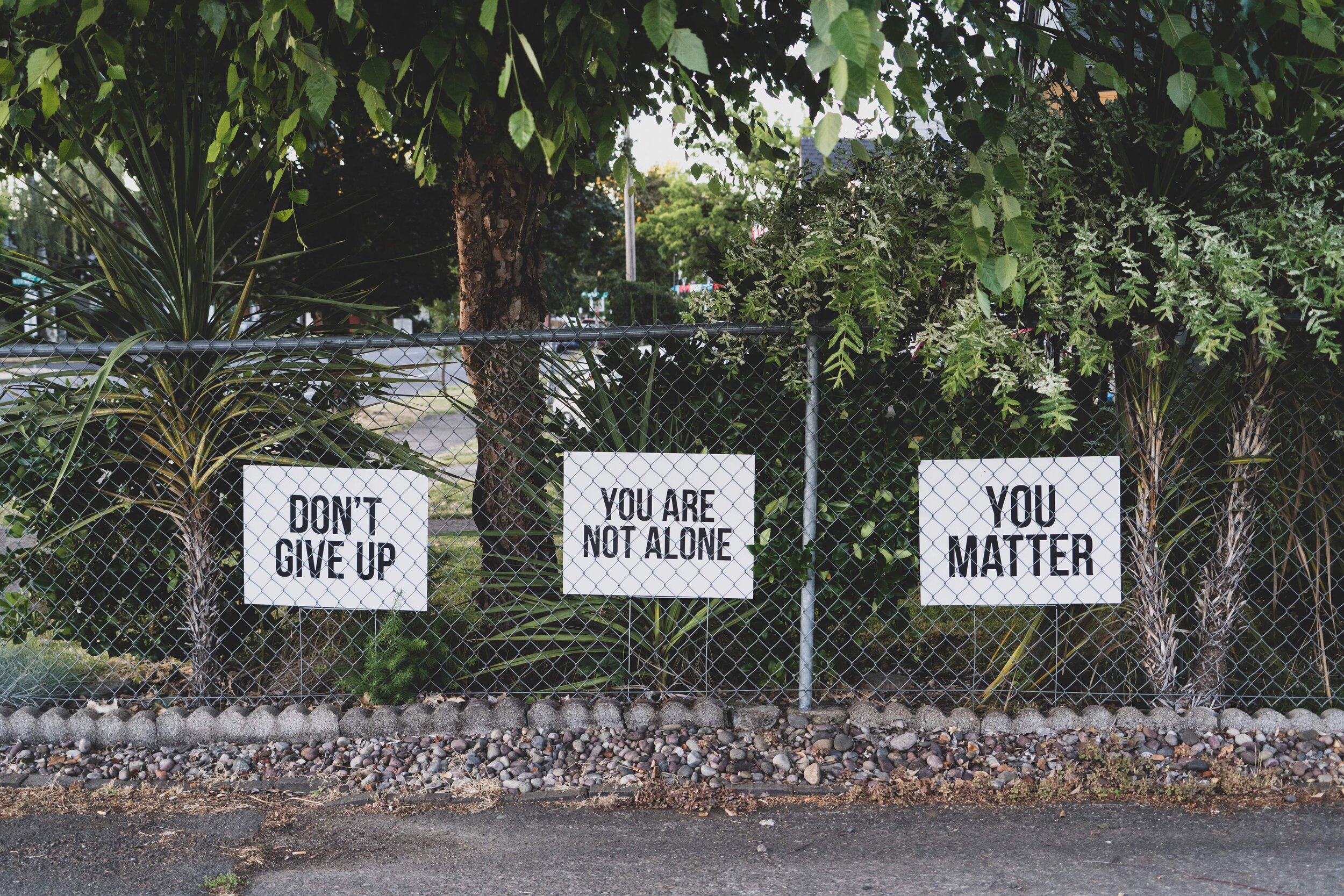
Relapse Prevention
Concerned That You Might Relapse Into Drug Or Alcohol Use?
Are you in recovery from substance abuse or drug and alcohol addiction? Has escalated stress or pressure caused an urge to use again? Do you feel that you could manage symptoms of anxiety, depression, and distress better if you could just drink or use for a short time?
Getting sober is difficult as is, and daily stressors make it hard to get through the day without feeling the need to use again. Maybe you’re overwhelmed with financial concerns, job loss, or relationship conflicts. Or perhaps the uncertainty of the future makes you ambivalent about committing to the long process of sobriety.
Relapse often occurs because of environmental or emotional triggers. You may find yourself in high-risk situations involving high-risk people who don’t value your sobriety. Or perhaps you realize that certain places, scenes, or songs trigger an urge to use. You may even have unresolved trauma from your past that creates disturbing memories or feelings that you’d rather forget or numb.
Do you wish you could just have a “normal” relationship with alcohol and other drugs?
When you have these desires, it’s important to remember the inherent strength that you build when deciding to get and stay sober. Therapy is a great way to feel encouraged, supported, and empowered to commit to relapse prevention.
Our Culture Does Little To Value Sobriety
Drinking and drug use are such widely acceptable facets of American culture that some people may feel as though they will be characterized as strange or weak for not partaking. However, for those of us in recovery, it’s not so simple. One drink or one hit can easily lead to a full-blown relapse, throwing us right back to the starting line—or even farther behind—on the road to sobriety.
Oftentimes, people entering recovery are not prepared for the triggers and stressors they will face as they transition out of drug or alcohol use. And they may even find themselves thinking that there will be a time in the future when they can use in moderation.
However, relapse prevention isn’t about unrealistic expectations; it’s about acknowledging that it takes a lot of time and energy to recover from a lifetime of destructive behaviors. And in the process, you are taught that new, healthy lifestyle choices can replace unhealthy ones as you strive for a life in which substances don’t only have so much control over your choices but are removed entirely from your purview.
It’s essential to remember that the process of learning and growing is not a sacrifice; what you’re giving up in your life did not serve you or your best interests. By accepting that your life will ultimately be more functional and brighter without the push-and-pull of addiction, relapse prevention is possible.
Relapse Prevention Therapy Is A Continuation Of Substance Abuse Counseling And Treatment
Substance abuse counseling is a hugely effective means for reducing the likelihood of relapse. Though you may have worked with a substance abuse counselor before committing to treatment and recovery, it’s important to maintain a therapeutic relationship throughout your sobriety.
While substance abuse provides more of an educational understanding of alcohol and drug dependency and addiction, relapse prevention gives you the opportunity to feel reinforced about your decision to stop using. Prevention is where everything that was learned in treatment gets put into action to ensure a successful future of recovery.
Beginning with a biopsychosocial assessment, we will identify your specific needs. Throughout our time together, we will work to identify and understand your triggers and the presenting risks that could lead to relapse. From there, our counselors will incorporate different behavioral methods—such as Cognitive-Behavioral and Dialectical Behavior Therapies—as well as motivation and acceptance techniques that will help you to reduce internal triggers and urges.
Over the course of relapse prevention, you will be invited into a safe, confidential, and nonjudgmental space where you can learn to understand how your thoughts, feelings, and beliefs about yourself lead to your decisions and behaviors. As you develop more clarity on the connection between these different parts of yourself, you will be better prepared to manage future stressors. In addition, you will learn valuable communication techniques that can help you assert your recovery needs to those around you.
At Wilmington Psychotherapy, we aim to cultivate a trusted and collaborative therapist-client relationship in which you can feel heard and supported. We understand that substance abuse recovery is a stressful and emotional process that requires a lot of energy and commitment. We value that commitment and are invested in providing you with a lifetime of strategies needed for relapse prevention.
Our team has half a century of combined experience in treating clients on the path to recovery. We have seen substance abuse counseling, treatment, and relapse prevention work in tandem to help our clients lead more functional, successful, and happier lives.
Reclaim the commitment you have to yourself and your recovery and let us help you along the way.
Perhaps you are interested in counseling to avoid relapse, but you have some concerns…
I don’t think that one-time use constitutes a relapse.
For those with substance abuse issues, we abide by the concept that “One drink is too much and a thousand isn’t enough.” While you may think that you will one day be able to have a “normal” relationship with drugs or alcohol, statistics say that complete abstinence is key to preventing relapse. An addict’s brain is wired to respond to alcohol and drugs in a way that creates a dependency, and therefore, it’s best to avoid alcohol or drug use entirely during recovery. Let us help you explore ways to make a wholehearted commitment to sobriety.
I am finding it too difficult to manage my substance use and behaviors, given the nature of my social life.
Imagine what it might be like to identify and celebrate relationships that exist outside of the context of drug use and drinking. Those relationships are possible! And counseling can help you learn ways to stay positive about what you have—rather than what you think you’re missing out on or the difficulty of the decisions you have to make.
Therapy for relapse prevention will give you the chance to learn communication techniques and strategies for asserting your boundaries around substances. There is a whole community of peers and professionals who are prepared to support you while offering alternative lifestyle choices.
I have stopped drinking/using. Why do I need prevention therapy?
Reinforcing sobriety takes time. You may not feel at risk for relapsing now, but you may feel an urge next month, next week, or in the next hour. To achieve genuine sobriety, you will need to cultivate the lifetime coping skills and strategies necessary for successful relapse prevention in a future that is sure to present unique triggers, vulnerabilities, and stressors. A therapist or substance abuse counselor serves to encourage and support your sobriety in a way that will be far less effective if you forge the path of recovery on your own. While you may not be using right now, you’re not sober yet.
Let Us Help You To Reduce The Risk For Relapse
If you are recovering from drug and/or alcohol abuse or addiction, relapse prevention therapy at Wilmington Psychotherapy can help to reinforce your sobriety. To schedule a free, 15-minute consultation or to find out more about how we can help, contact us today.













